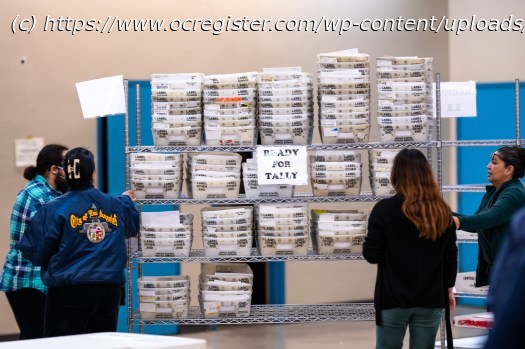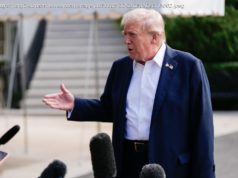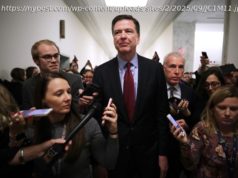According to the secretary of state, about 80% of ballots in California were cast by mail last year in the general election.
President Donald Trump‘s recent executive order overhauling U.S. elections has drawn swift opposition from California leaders and advocacy groups who say it threatens how the state conducts elections.
Signed Tuesday, March 25, the order calls for stricter voting rules, including requiring voters to provide proof of U.S. citizenship to register, not counting ballots received after Election Day and prohibiting non-U.S. citizens from donating in certain elections. Acceptable documents for proving citizenship under the order include a U.S. passport, a U.S. military card indicating citizenship or any valid federal or state-issued photo ID confirming citizenship.
California allows ballots postmarked by Election Day to be counted if they arrive within seven days — a policy that could be impacted if the federal government withholds funding from states that accept late-arriving ballots, as Trump’s order proposes.
Most Californians vote by mail. According to the secretary of state, about 80% of ballots in California were cast by mail in the 2024 general election.
And in California, most ballots are also counted after Election Day. While early voting and mail-in ballots received before Election Day are processed and posted on election night, vote-by-mail ballots postmarked by Election Day, along with provisional ballots, are counted during the official canvass period within 30 days after the election.
California was the last state to call its congressional races in 2024.
Rick Hasen, who leads the Safeguarding Democracy Project at UCLA Law, said the order will likely face legal challenges but warned that if it holds up in court, it would shift control over federal elections from states and Congress to the presidency.
In 2018, the U.S. Supreme Court ruled that the Constitution grants states the authority to determine the qualifications for voting in congressional elections.
The executive order, would “prevent only a tiny amount of noncitizen voter registration but stop millions of eligible voters, who do not have easy access to documents, such as passports, from registering to vote,” Hasen said.
Trump’s order directs the U.S. Election Assistance Commission — an independent agency that certifies voting equipment and distributes funding to states for improvements to voting technology — to require proof of citizenship on the federal voter registration form. Hasen argued the president lacks the authority to impose such a change unless courts accept a broad interpretation of executive power.
Election officials in Los Angeles, Orange, Riverside and San Bernardino counties largely avoided taking a stance on the order, instead emphasizing their duty to follow state and federal election laws.
“Elections in California are governed by state law — including the California Elections Code — as well as specific provisions in federal statutes such as the Voting Rights Act and the National Voter Registration Act,” said Dean Logan, the Los Angeles County registrar-recorder/county clerk. “As always, we will thoughtfully approach any potential changes to voter registration and election processes with a commitment to the voter experience, ensuring all eligible voters have convenient and equitable access to register and fully participate in our democracy.
Start
United States
USA — Political How could Trump’s recent executive order impact California elections?






